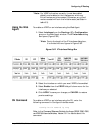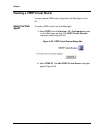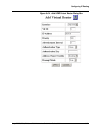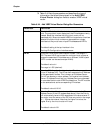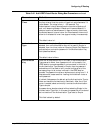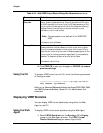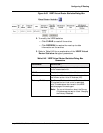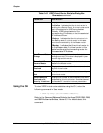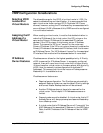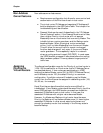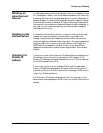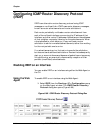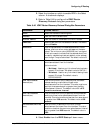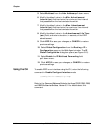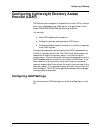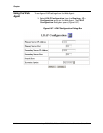
Avaya P550R, P580, P880, and P882 Multiservice Switch User Guide, v5.3.1 9-103
Configuring IP Routing
VRRP Configuration Considerations
Selecting VR ID
numbers for
Virtual Routers
The allowable range for the VR ID of a virtual router is 1-255. For
easiest troubleshooting and identification, it is recommended that
each virtual router have a unique VR ID. Duplicate VR ID's are
allowed, however, as long the IP Interfaces they are associated with
are on different VLAN's. Because of this, VRRP cannot be configured
in a multinetted network.
Assigning the IP
Address of a
Virtual Router
When creating a virtual router, it must be first decided whether to
make the IP Address of the virtual router (the VIP) unique or the
same as the Primary IP Address of the associated IP Interface
address. If the VIP is unique, this is known as non-IP Address
Owner. This means the VIP is not "owned" by the router as a
Primary IP Address. If the VIP is not unique, meaning it matches the
Primary IP Address of the associated IP Interface, then this is known
as IP Address Owner. The VIP Address is "owned" by the associated
IP Interface. Each method will be discussed below in more detail.
IP Address
Owner Features
IP address owner allows for the highest possible priority. A Priority
of 255 is reserved for IP Address Owner. In a properly configured
network, there will never be a virtual router with a higher priority
(if there is another virtual router on the same subnet with a priority
of 255, then the network is misconfigured with duplicate IP
Addresses). This means that this virtual router will always assume
Mastership if it is available to do so.
IP address owner features are:
■ Requires less configuration. The Priorities are automatically
assigned. Backup routers can use the default Priority settings
and correct Master-Backup election will be achieved.
■ Another IP Address does not have to be reserved for the
virtual router. This is helpful if IP Addresses are scarce or
limited.
■ Preempt mode cannot be disabled. A virtual router that is IP
Address Owner will always preempt and assume Mastership
from a Backup router.
■ A virtual router that is IP Address Owner will "overwrite" the
MAC Address of the associated IP Address. In the ARP Cache
Table, the MAC Address of the IP Address will be the VRRP
MAC.



